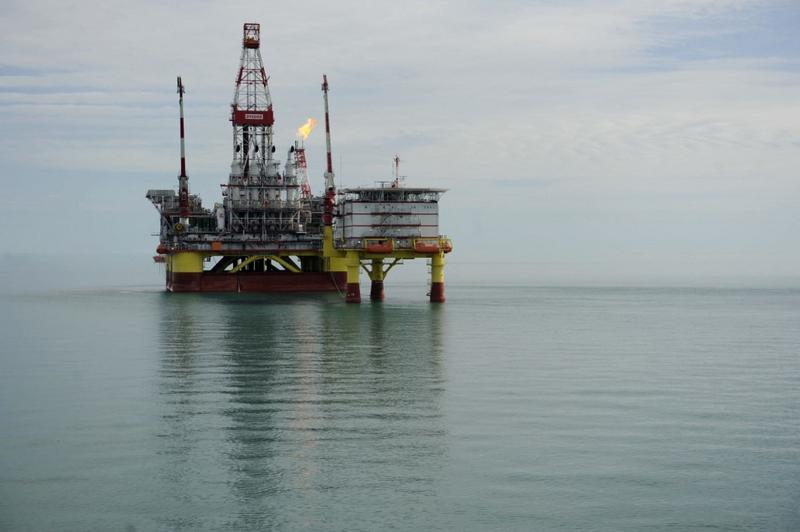 This file photo taken on April 10, 2011 shows the Russian LUKOIL ice-resistant fixed platform LSP-1, built at the Astrakhansky Korabel shipyard, intended to drill and operate wells and collect and pre-treat reservoir content at Korchagin's oil field in the Russian sector of the Caspian Sea some 180 km outside Astrakhan. (MIKHAIL MORDASOV / AFP)
This file photo taken on April 10, 2011 shows the Russian LUKOIL ice-resistant fixed platform LSP-1, built at the Astrakhansky Korabel shipyard, intended to drill and operate wells and collect and pre-treat reservoir content at Korchagin's oil field in the Russian sector of the Caspian Sea some 180 km outside Astrakhan. (MIKHAIL MORDASOV / AFP)
Russia "will not accept" a price cap on its oil and is analyzing how to respond, the Kremlin said in comments reported on Saturday, in response to a deal by Western powers.
Kremlin spokesman Dmitry Peskov said Moscow had made preparations for Friday's price cap announcement by the Group of Seven nations, the European Union and Australia, the Russian state news agency TASS reported.
Russia has repeatedly said it will not supply oil to countries that implement the cap - a stance reaffirmed by Mikhail Ulyanov, Moscow's ambassador to international organizations in Vienna
"We will not accept this cap," RIA news agency quoted him as saying. He added that Russia would conduct a rapid analysis of the agreement and respond after that, RIA reported.
Russia has repeatedly said it will not supply oil to countries that implement the cap - a stance reaffirmed by Mikhail Ulyanov, Moscow's ambassador to international organizations in Vienna, in posts on social media on Saturday.
ALSO READ: G7 coalition agrees $60 per barrel price cap for Russian oil
"Starting from this year Europe will live without Russian oil," he said.
The G7 price cap will allow non-EU countries to continue importing seaborne Russian crude oil, but it will prohibit shipping, insurance and re-insurance companies from handling cargoes of Russian crude around the globe, unless it is sold for less than $60. That could complicate the shipment of Russian crude priced above the cap, even to countries which are not part of the agreement.
Russian Urals crude traded at around $67 a barrel on Friday.
US Treasury Secretary Janet Yellen said the cap will particularly benefit low- and medium-income countries that have borne the brunt of high energy and food prices.
READ MORE: EU adopts 8th package of sanctions against Russia
In comments published on Telegram, Russia's embassy in the United States criticized what it called the "dangerous" Western move and said Moscow would continue to find buyers for its oil.
"Steps like these will inevitably result in increasing uncertainty and imposing higher costs for raw materials' consumers," it said.
"Regardless of the current flirtations with the dangerous and illegitimate instrument, we are confident that Russian oil will continue to be in demand."


